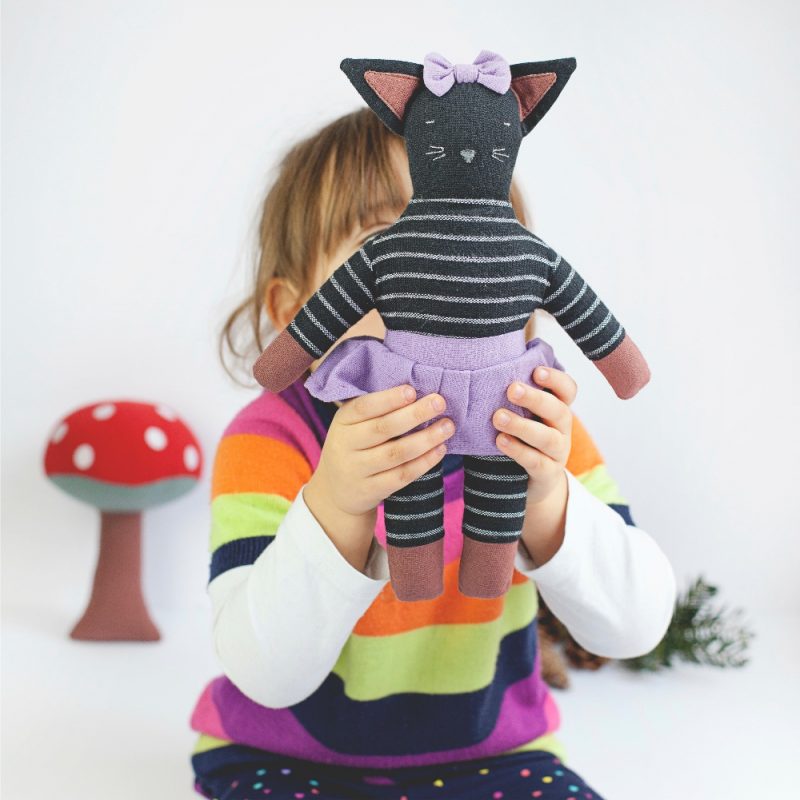Little girls have always played with dolls, however all children should have the opportunity to own and play with dolls regardless of gender. Toys that are aimed at boys are usually based on aggression or competitiveness, whereas dolls are generally aimed at promoting nurturing and social skills. A healthy balance would be for both girls and boys to have a chance to play with toys that promote all these skills. It is widely accepted these days that girls should be encouraged to play with toys that are traditionally ‘boy’s toys’ such as cars and Lego, however sadly it is not the same for toys that are traditionally aimed at girls.
Playing with dolls can be hugely beneficial for boys (and girls) in their developmental skills.
Language Skills
A doll is a toy that can really assist in expanding a child’s interactive play. They learn a lot of language through playing with dolls giving them the opportunity to use and practice their speech and linguistic skills. As they progress into greater imaginative play, they will further extend their vocabulary.
Cognitive & Motor Skills
Children use dolls to practice skills before they are able to apply it themselves, such bathing, getting dressed and brushing their teeth. Boys tend to develop their fine-motor and self-help skills a little later than girls, therefore have an even greater need of a doll. At the age of two or three a doll can become a friend and confidante that can help overcome fears or emotional issues. Dolls can be a source of comfort and assist in make believe scenarios similar to the child’s own, helping them face challenges and find solutions.
Nurturing skills
Caring for a doll increases caring and nurturing skills. Children learn to be responsible for the doll as they care for it and pretend play imaginary scenarios. This gives them the opportunity to see beyond just themselves and develop vital strengths such as empathy and selflessness, which will hopefully lay down the foundation for empathetic parenting when they are older.

